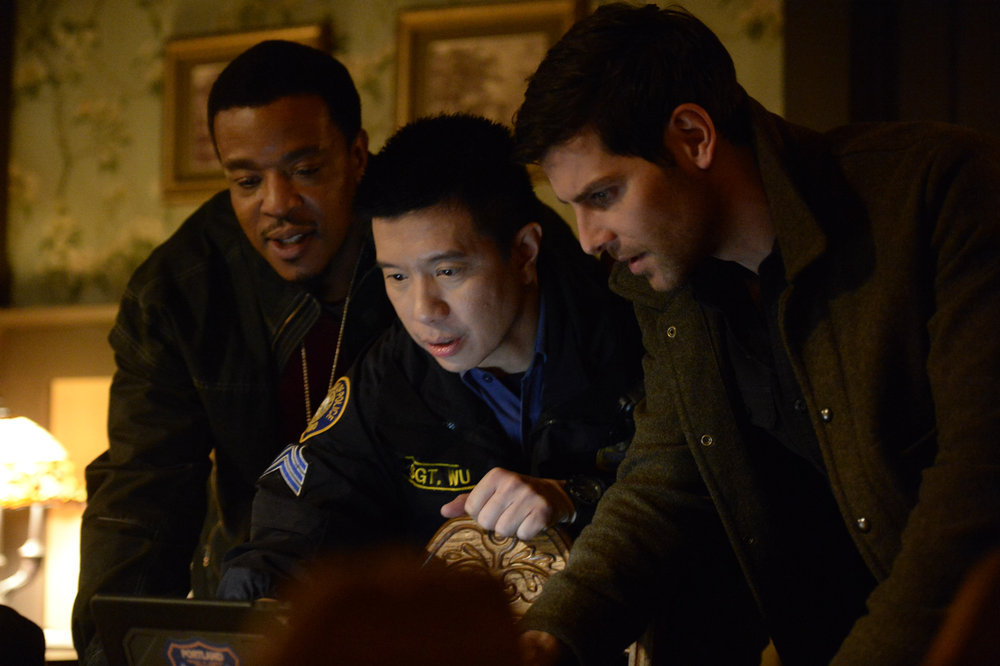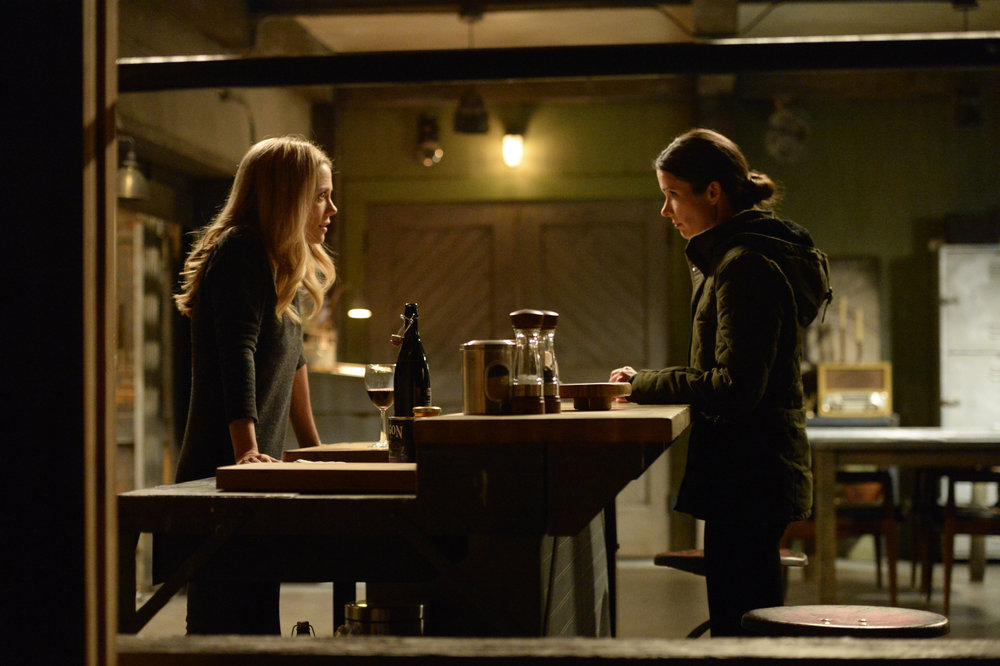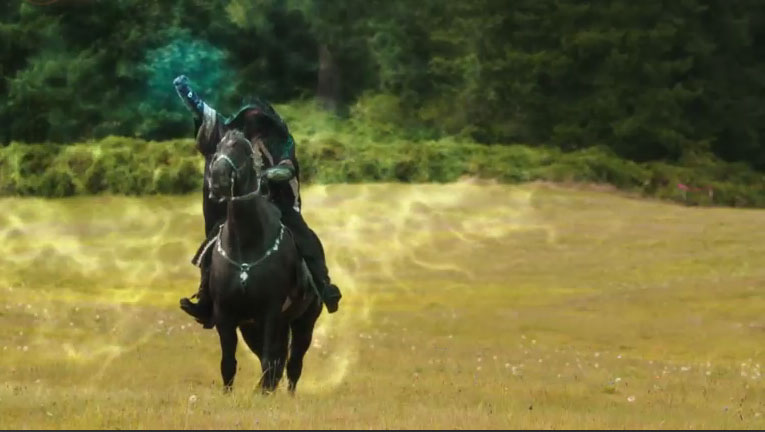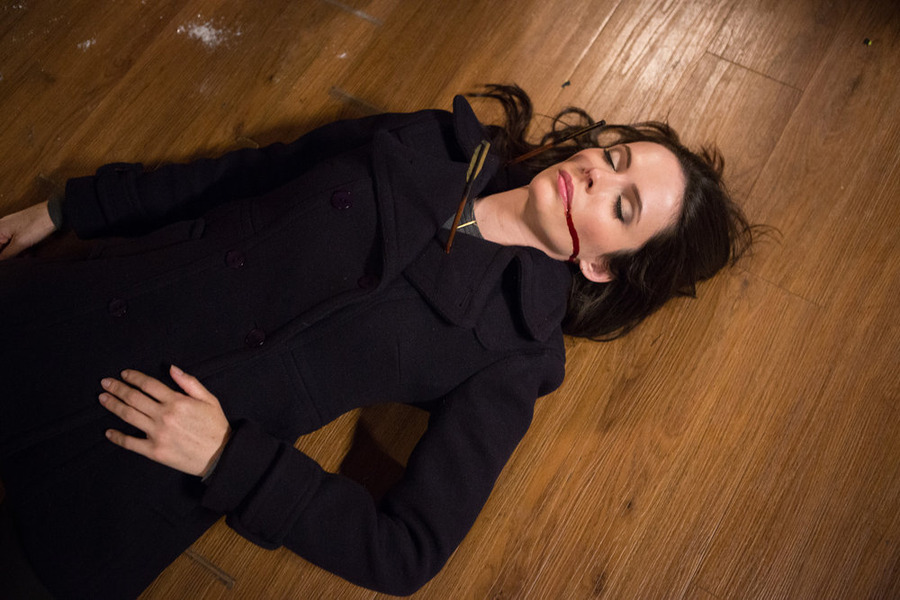GRIMM Meets the Godfather of Death

![]()
Episode 6:10 “Blood Magic”
Written by Thomas Ian Griffith
Directed by Janice Cooke
[recap by Maia Ades]
Folks, the end is getting close. This is episode ten. That means only three more are left. Are you planning your watch parties for March 31st? I’d love to hear what fans are planning for the final episode. It would also be fun to see your party pics.
[audioplayer file=”http://www.podcasts.com/download/scifi4me-radio-grimmly-speaking-ae5c60159/GRIMM-Meets-the-Godfather-of-Death-f110″ titles=”Grimmly Speaking: GRIMM Meets the Godfather of Death” artists=”SciFi4Me Radio” track=”ffc011″ text=”301c11″]

This season has had more moral and ethical questions raised than probably the other five seasons put together. Which is interesting. It proves that Grimm could have worked on more levels all these past seasons than it did. At this point the show is well established as something else and inserting these larger issues is a bit awkward. Mostly because it’s not part of the show’s formula.
Despite what big wigs in TV production may tell you, each show has their own formula. They find a rhythm, look and sequence to their own story structure that works for that particular show. It’s much easier to repeat a set style and formula for episodic television than to try and reinvent the show on a weekly basis. Besides, audiences tune in because they’ve come to expect certain elements or style of a show. It’s not wrong, or bad. It’s the way it is. It also explains why many first seasons are more rough. The show, the crew, the writers and cast are finding their particular take on what the show will become.
In case you’ve forgotten, Grimm was no different. Don’t believe me, go back and re-watch some of the episodes from the first season. In fact to really see what I mean. Watch more than one. Take, say the pilot, one in the middle and the last episode of season one. You’ll see some variation in the formula. Oh and for grins and giggles, go then to a later season and see how they compare. The show became more set and polished in it’s look and feel.

Our A storyline is the police case. It centers around the question about what happens when a Wesen suffers from dementia. In this case, it has deadly consequences. We have two different senior Wesen, both suffering severe dementia. One resides in a long term care facility and the other is still at home. Mr. Stanton resides at home. His wife has been trying to manage his symptoms by herself. She’s not very effective in her goal. He goes wandering off on two separate occasions and kills two people. Not only does he kill them, but he kills them with speed, strength and ferocity that doesn’t seem remotely plausible for this older gentleman. The lady in the care facility is totally out of it. She’s 91 and rambling on about hunts in the woods. She seems harmless till she woges and attacks the orderly that cares for her.
There are several problems with this script. I think they could have been solved with a longer story. But, with only 43 minutes it’s hard to work through the various plot holes. The worst is that the solution for all this is a particular Wesen based on the assassin beetle and he doesn’t seem to be solving the problem in a timely manner. He waited much too long with the lady that actually resides in the same care facility he works in as a doctor. The other is due to the wife’s reluctance to face her husband’s condition. It doesn’t make sense to me that such a flawed solution is what has helped to keep the Wesen population secret all these ages. Since in the span of maybe a week or so, just in Portland we have two separate cases in which this system failed.
The best thing this episode did was to address issues of aging and the grace of allowing someone to die with dignity. Although, dying with a bug sticking poisonous saliva up your nose could be argued to lack dignity. The final scene was very moving. It was both hard to watch and somehow very sweet at the same time. I can’t say that Mr. Stanton’s end brought any justice to the families of the two people he killed. That is not fair. It’s also not reality. Grimm brings us a different flavor of reality. By now, you either embrace this world and many of it’s quirks or you probably stopped watching several seasons ago.

The B storyline is all about Eve (Elizabeth Tulloch). And yes, she’s earned the name Eve once again. Her hair is tightly back on her head. She can woge at will and she has a very Hexeniest oriented goal. She is driven by the idea that she must go through a mirror to the “other place”, as Diana calls it. Most of us would be resigned to the notion that we’d have to avoid mirrors for the rest of our life. Not Eve. Eve is certain that she must go and face the skull dude or he’ll come and face her. She manipulates Adalind (Claire Coffee) into handing over her mother’s spell books. She seems to promise that she won’t try to enter the other dimension on her own. But of course that’s exactly what she has in mind and manages to pull off. I’m sure she’s in danger. I don’t know if she’ll survive. And I expect that Diana will be next through a mirror. She’s the only one with enough power to pull this off. I don’t know if Adalind will accompany her or not.
How this affects the rest of our cast of characters will be interesting. I suppose that this might be the event that the symbols foretold. Or maybe not. We have three more episodes to find out.
Grimm airs Friday nights at 8/7c on NBC.
![]()




